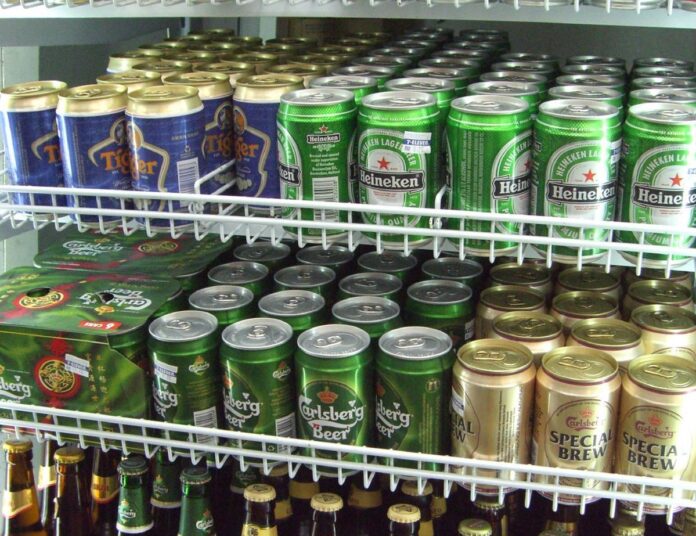
KUALA LUMPUR — Existing laws governing liquor sales are enough to prohibit their sale to Muslims without the need for bans by local authorities, an MCA figure said.
Former deputy minister of youth and sports, Datuk Ti Lian Ker, said this in response to plans by the Ipoh City Council to institute a ban on the sale of liquor in more areas, adding that local councils should not act “at their whims and fancies, even in Malay-majority areas”.
Ti said the Excise Duty Act 1976 which has provisions governing liquor sales already prohibits such sales except with the required license, and conditions to obtain the license include restrictions on who alcohol can be sold to.
“This license applied for would generally come with conditions including expressly prohibiting the sale of alcohol to minors and Muslims,” Ti, who is Kuantan MCA division chief, said in a statement today.
The requirement for a license to sell alcohol is under Section 32 (1) of the Excise Act which states a license is necessary to sell any intoxicating liquor “in a place specified”.
“Local government bye-laws or regulations cannot bypass, supercede or overrule or simply impose another condition on and above a federal licence approved under the federal laws, unless it is matters not specifically governed and provided by another federal law,” Ti said.
“Legally speaking, such bans or additional restrictions by local councils are invalid or in contravention with established legal principles and practices.
“Thus, restricting the sale of alcohol also impinges on the constitutional rights, freedoms and lifestyle choices of non-Muslims,” he added.
Yesterday, Berita Harian reported plans by the Ipoh City Council to expand its ban on the sale of liquor and alcoholic drinks to more Malay-Musliim areas, other than Manjoi, where such a ban has been in place by the council since 2021.
Ipoh Mayor Datuk Rumaizi Baharin was reported telling a press conference that residents in Muslim-majority areas in Ulu Chepor, Rapat Setia and Kampung Sungai Rokam have requested a ban on liquor sales in their areas.
“In principle, we’ve agreed, but we need to look at each area and hold studies,” Berita Harian quoted him as saying.
Ti said he had challenged the confiscation of beer from a 7-11 store in Pahang in 2005, after an Umno assemblyman complained.
“I had argued that there are no laws that prohibit the sale of alcoholic beverages in Malay majority areas and even a sundry shop in a 90% populated Malay kampung has been selling alcoholic beverages below 2% content in cans.”
The 2% limit is defined in the Excise Act as an “intoxicating liquor”.
“My arguments were accepted by the state legal adviser then and the Exco Agama then had also reiterated in the Dewan Undangan Negeri that under Islam, the prohibitions to deal, trade or consume alcoholic drinks are only confined to Muslims, and non-Muslims have their liberty and choice to do otherwise. This statement is in the Hansard,” Ti added.
Given existing laws that already forbid Muslims from purchasing or consuming such drinks, local authorities “must not succumb to political arm twisting by quoting demographic as a political authority”.
“The license holder should not be further restricted or penalised. Instead, enforcement should be focus on and against the buyer and the particular outlet that sells such alcohol drinks without a license. But there should not be any blanket ban or restriction on license holder based on areas or demographics,” he said. – January 19, 2025



